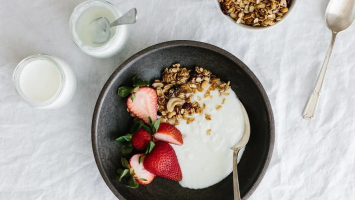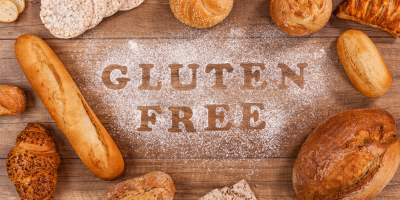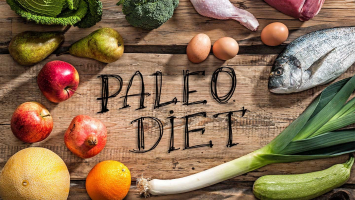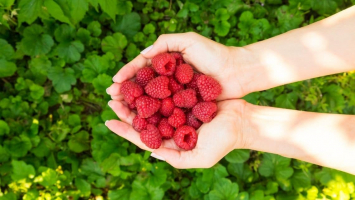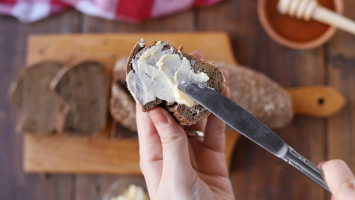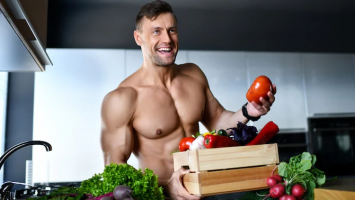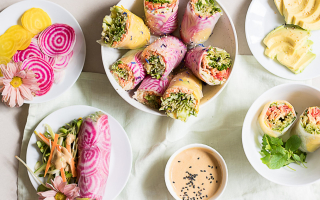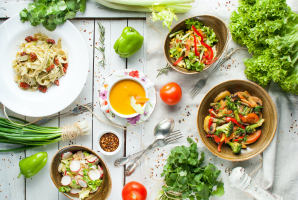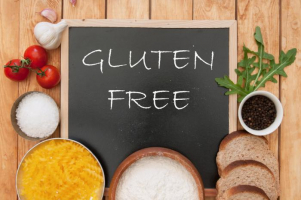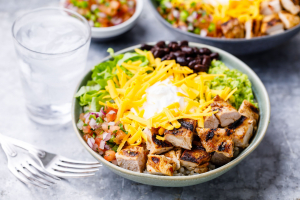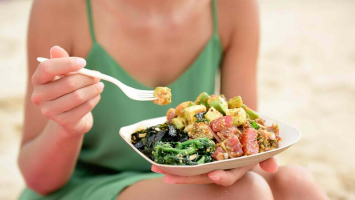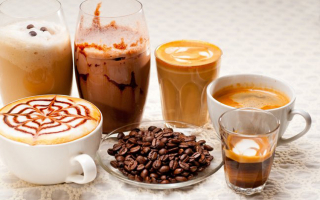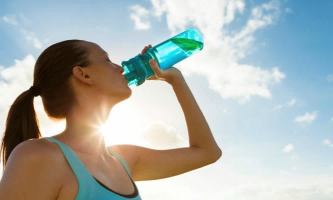Top 10 Mistakes to Avoid on a Vegetarian or Vegan Diet
Numerous health advantages can be obtained from a balanced vegetarian or vegan diet. These diets have been linked to reduced risk of heart disease, better ... read more...blood sugar regulation, weight loss, and some types of cancer. Maintaining a well-rounded vegetarian diet that has all the nutrients you require can be difficult, though. The most frequent mistakes people make when following a vegan or vegetarian diet are highlighted in this article, along with advice on how to prevent them.
-
Sadly, a food item's labeling as "vegetarian" or "vegan" does not always imply that it is healthier than the standard option. For instance, vegan diets frequently include almond milk, popular plant-based milk.
Almond milk is low in calories and fortified with a number of significant vitamins and minerals, but it does not necessarily mean it is better for you than cow's milk. For example, 1 cup (240 ml) of low-fat cow's milk has 8 grams, compared to 1 gram in the same amount of unsweetened almond milk. One cup of sweetened almond milk has 16 g of sugar, which is a substantial amount of added sugar. Other vegetarian products, such as soy-based veggie burgers, nuggets, and meat substitutes may have a large list of artificial ingredients and are highly processed. They are therefore frequently no healthier than other processed non-vegetarian foods. Despite being vegetarian, these goods frequently have high-calorie counts and are deficient in the protein, fiber, and nutrients that make up a healthy meal. While these products could make switching to a vegan or vegetarian diet easier for you, it's preferable to combine them in moderation with a diet rich in nutritious, whole foods.
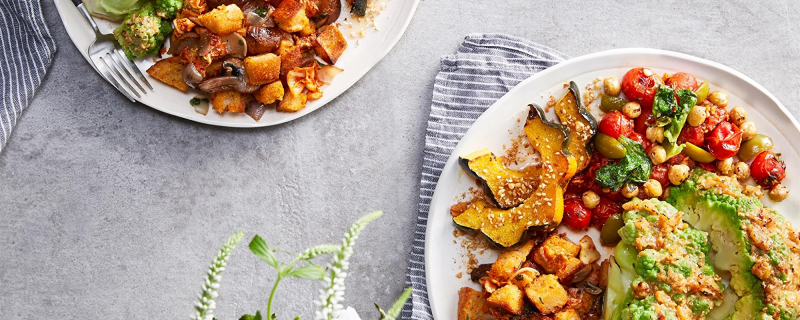
Assuming That Vegan or Vegetarian Products Are Automatically Healthier 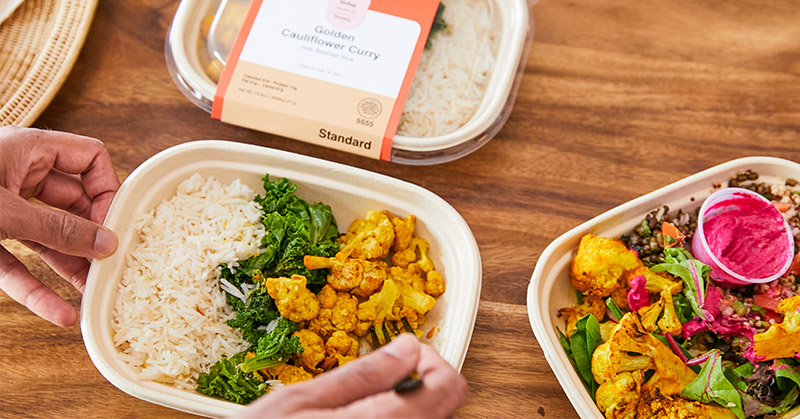
Assuming That Vegan or Vegetarian Products Are Automatically Healthier -
In the body, vitamin B12 has various important roles. Among other things, it's crucial for the production of DNA and red blood cells. Unfortunately, animal products such as meat, poultry, seafood, eggs, and dairy products are the main sources of vitamin B12. As a result, vegans are more susceptible to vitamin B12 deficiencies.
Lack of vitamin B12 can result in fatigue, memory problems, and numbness. Megaloblastic anemia, which is brought on by having fewer red blood cells than normal, can also result from it. Unfortunately, a high folate consumption might mask vitamin B12 insufficiency symptoms, delaying the onset of severe damage. But vegetarians can acquire the vitamin B12 they need from certain foods and supplements. Aside from animal sources, vitamin B12 is also found in fortified foods and some varieties of edible algae. Vegans and vegetarians should carefully monitor their vitamin B12 consumption and, if necessary, consider taking supplements.
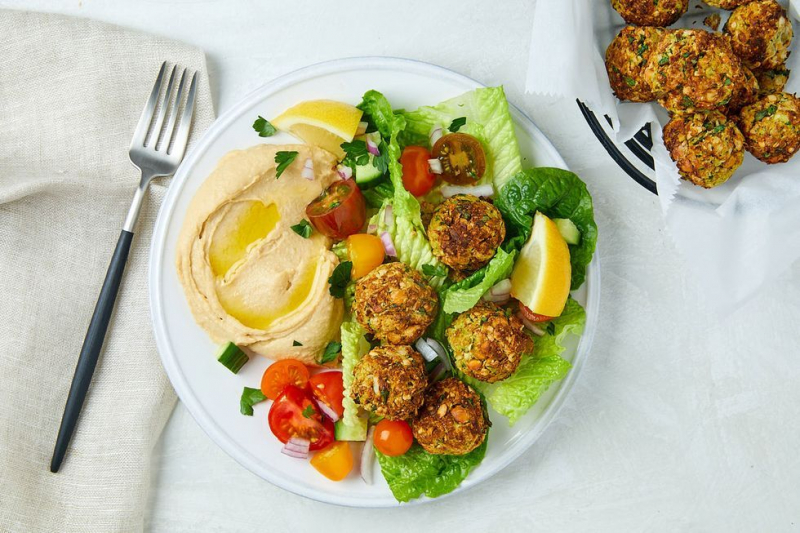
Not Getting Enough Vitamin B12 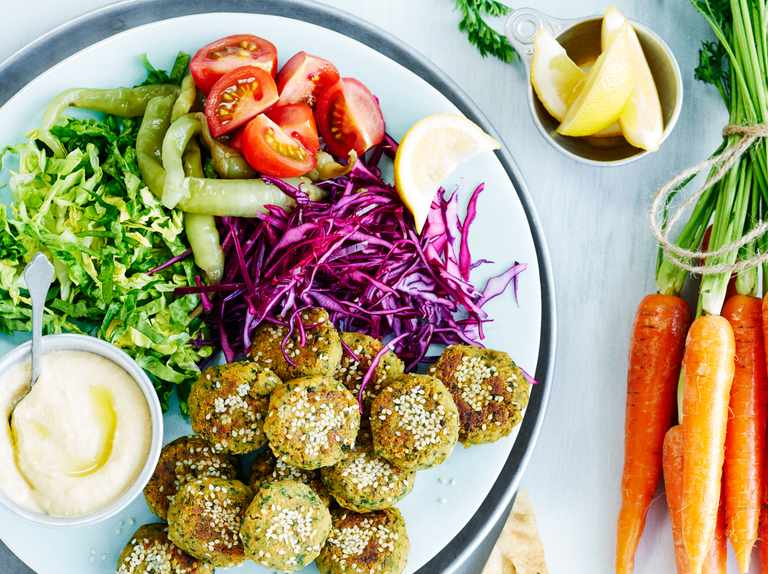
Not Getting Enough Vitamin B12 -
Eliminating meat and substituting cheese is one of the simplest methods to turn almost any dish into vegetarianism. The substitution tastes great in sandwiches, salads, pasta, and many other foods.
However, although having a healthy amount of protein, vitamins, and minerals, cheese cannot completely replace the variety of nutrients included in meat. For instance, one ounce (28 grams) of beef has twice as much zinc and four times as much iron as one ounce (28 grams) of cheddar cheese. In comparison to meat, cheese has higher calories and less protein. In fact, cheese only has around 80% of the protein found in chicken per ounce, but it has over 2.5 times as many calories. You should incorporate a range of plant foods in your diet to meet your nutrient demands rather than just switching out meat for cheese. Excellent choices to fulfill a vegetarian diet include chickpeas, quinoa, tempeh, lentils, beans, and almonds.
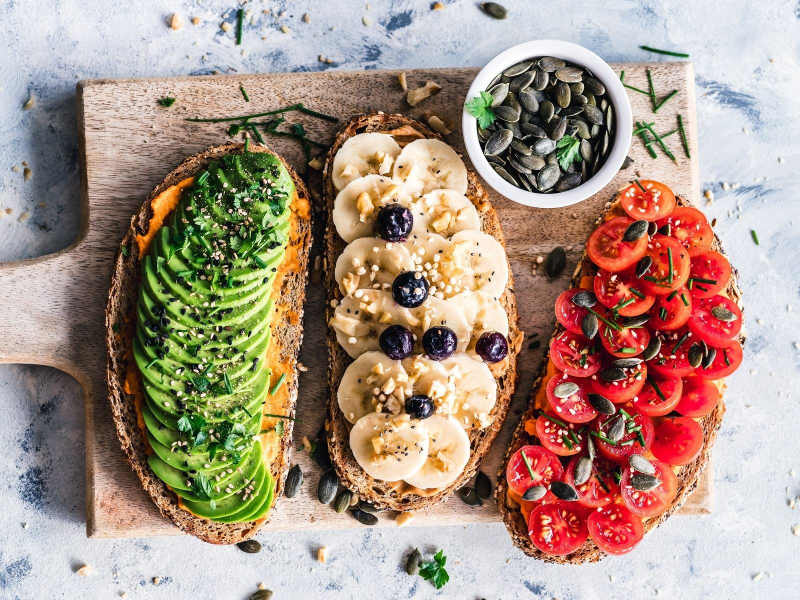
Replacing Meat With Cheese 
Replacing Meat With Cheese -
It might be difficult for vegans and vegetarians to meet their calorie needs because so many foods and food groups are off-limits to them. In fact, people who eat just plants or are vegetarians or vegans typically consume fewer calories.
In one study, the nutritional value of 1,475 people's diets—including those of vegans, vegetarians, fish-eating vegetarians, people who ate both meat and plants, and those who had meat only once per week—was compared. With 600 fewer calories than those who ate both meat and veggies, vegans had the lowest calorie consumption of all of the groups. Even though vegetarians and vegans consumed somewhat more calories than meat-and-vegetable eaters did, they still consumed 263 fewer calories overall. Your body requires a certain number of calories to function, which is the main source of energy for the body. Overly limiting calories can have a number of detrimental side effects, including vitamin shortages, fatigue, and slowed metabolism.
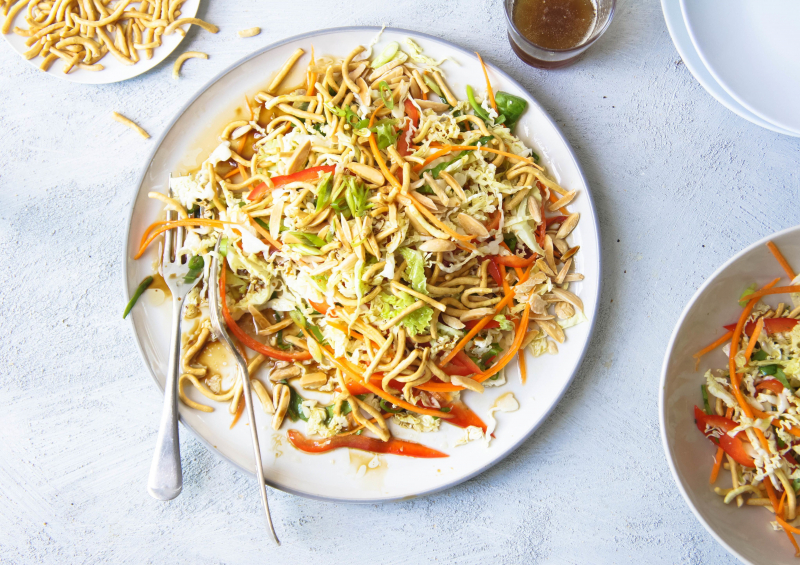
Eating Too Few Calories 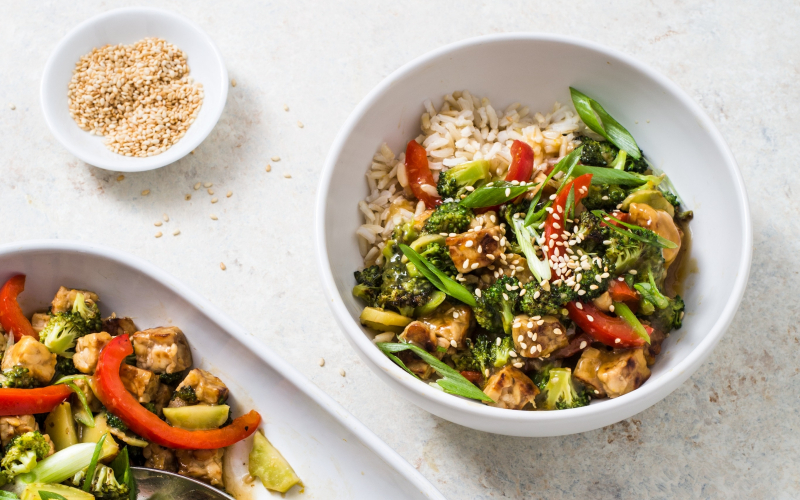
Eating Too Few Calories -
Everyone should drink enough water, but those who consume a lot of fiber, such as vegetarians and vegans, may need to do so much more. Since whole grains, legumes, and vegetables are essential components of a wholesome vegetarian diet, vegetarians typically consume more fiber than non-vegetarians.
According to one study, those who consume both meat and plants daily consume roughly 27 g of fiber, compared to 41 and 34 g for vegans and vegetarians, respectively. Drinking water with fiber is important because it can help fiber move through the digestive tract and prevent issues like gas, bloating and constipation. Consuming fiber is crucial for the health and has been associated with a lower risk of obesity, diabetes, heart disease, and stroke. According to current recommendations, women should consume at least 25 g of fiber daily, while men should ingest at least 38 g. Drink when you are thirsty and spread out your water intake throughout the day to stay hydrated. This will ensure that you are getting enough water to be hydrated.
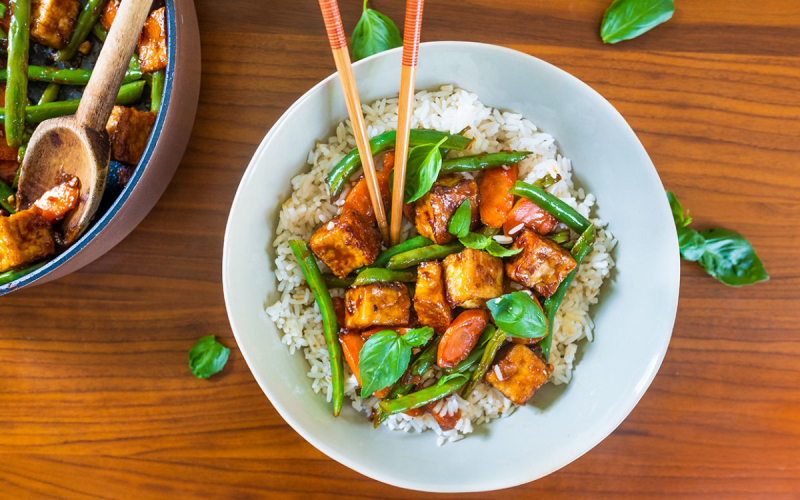
Not Drinking Enough Water 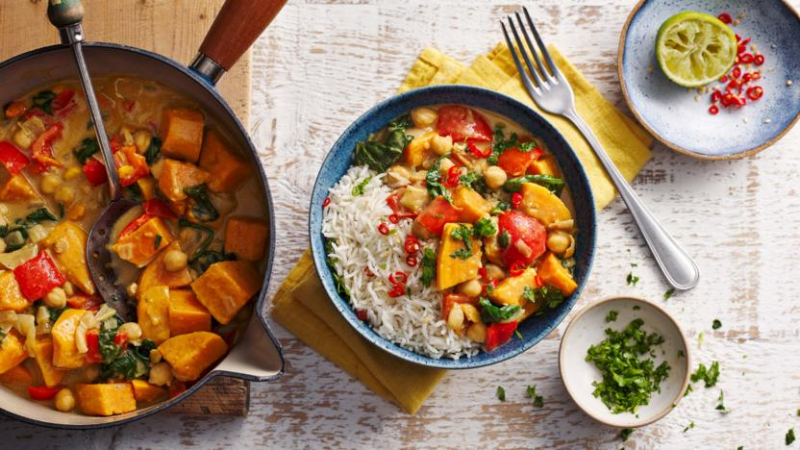
Not Drinking Enough Water -
Iron is one of the numerous essential vitamins and minerals that can be found in meat. For instance, a 3-ounce (85-gram) serving of ground beef provides 14% of the daily recommended intake of iron.
Meat also contains heme iron, a type of iron that is simple for your body to absorb. Non-heme iron, which your body can't absorb as efficiently, is found in plant sources of iron. Numerous varieties of fruits, vegetables, cereals, and legumes contain non-heme iron. As a result, vegetarians are more likely to experience iron-deficiency anemia, a condition in which there are not enough red blood cells in the body. Dizziness, shortness of breath, and fatigue are symptoms. However, you can receive all the iron you need from a well-planned vegetarian diet that is rich in plant-based foods. Make sure to eat lots of healthy sources of iron, such as lentils, beans, fortified cereals, nuts, seeds, oats, and leafy greens, if you're a vegetarian or vegan. Furthermore, combining foods high in vitamin C with foods high in iron can improve the absorption of non-heme iron. Including a vegetable side dish, salad, or piece of fruit with your meals will help increase iron absorption because most fruits and vegetables include vitamin C.
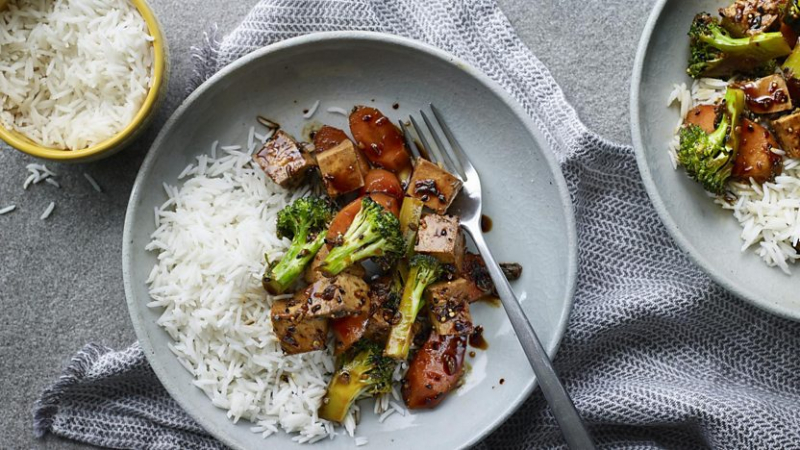
Forgetting About Iron 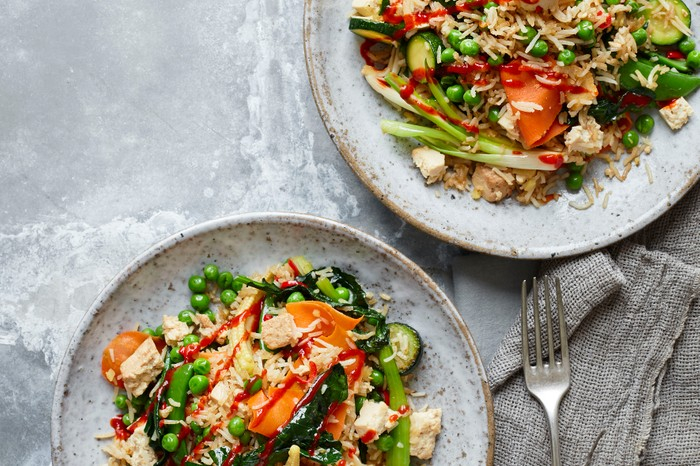
Forgetting About Iron -
A food product is not necessarily healthy for you just because it is vegetarian or vegan. At the grocery store, there are many processed foods that are free of meat or other animal products. They frequently don't add much to your diet, though.
Instead of consuming these, make the most of your vegetarian diet to eat fewer processed foods and more nutrient-dense, whole foods like fruits, vegetables, and whole grains. You may prevent nutrient deficiencies by increasing your intake of these foods, which will help you acquire the essential vitamins, minerals, and antioxidants you need. There may be further benefits to eating whole foods as compared to processed foods, such as a faster metabolism. One study compared 17 participants' metabolisms after they consumed a meal made with either processed or whole foods. After the meal, all groups reported feeling similarly satisfied, however the group that had whole foods burned nearly twice as many calories as the group that consumed processed foods. Replace refined grains with whole grains and cut back on processed and convenience foods to start consuming more whole foods. Additionally, try including more fruits and veggies in your meals and between-meal snacks.
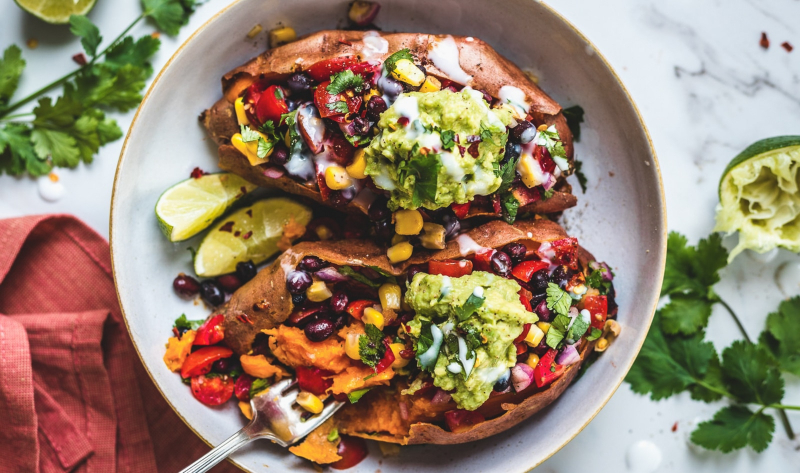
Not Eating Enough Whole Foods 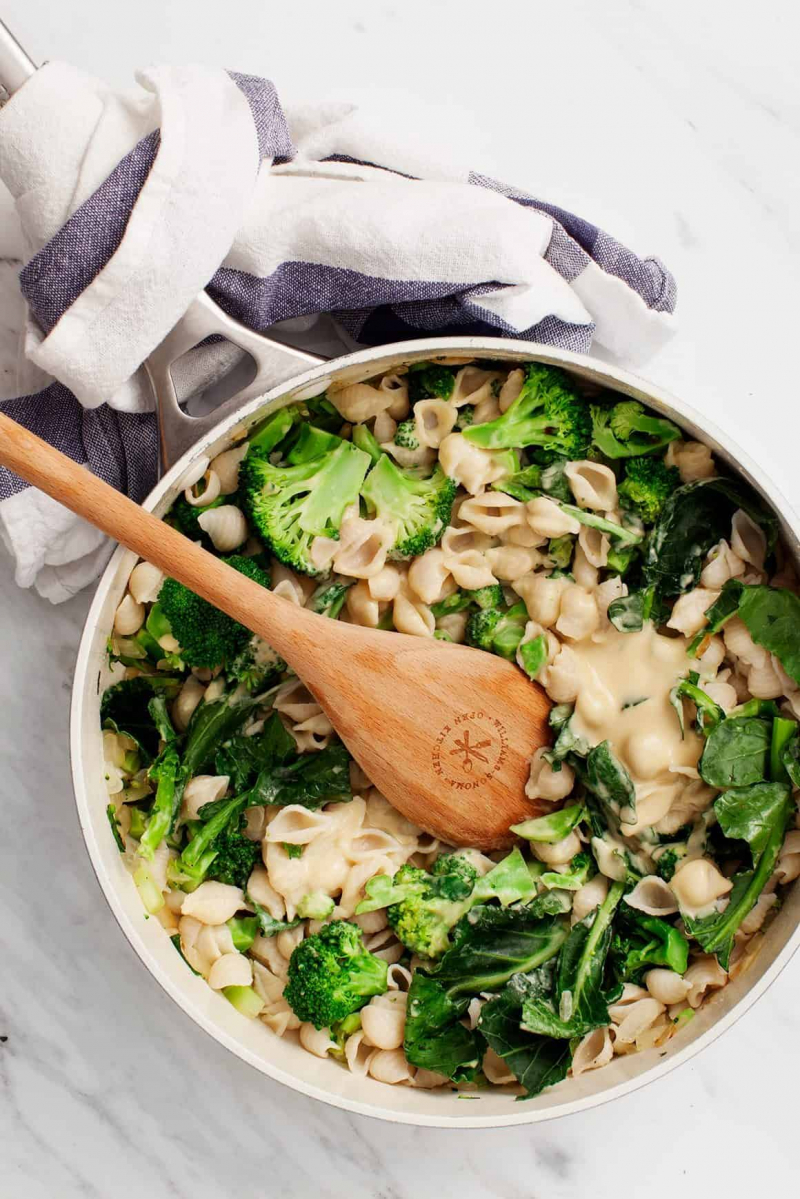
Not Eating Enough Whole Foods -
Your body requires calcium to sustain the health of your nervous system, maintain healthy bones and teeth, and keep your muscles working normally. Osteoporosis, a condition that results in weak, porous bones and raises the risk of bone fractures, can be brought on by a calcium deficit.
Although calcium can be found in many foods, dairy products are the most popular source. Those who don't drink dairy should watch their calcium intake and eat more foods high in calcium. Kale, collard greens, broccoli, bok choy, almonds, figs, and oranges are some examples of calcium-rich plant foods. A good source of calcium can also be found in fortified foods. By including a few servings of these foods in your meals and snacks throughout the day, you may obtain all the calcium you require.
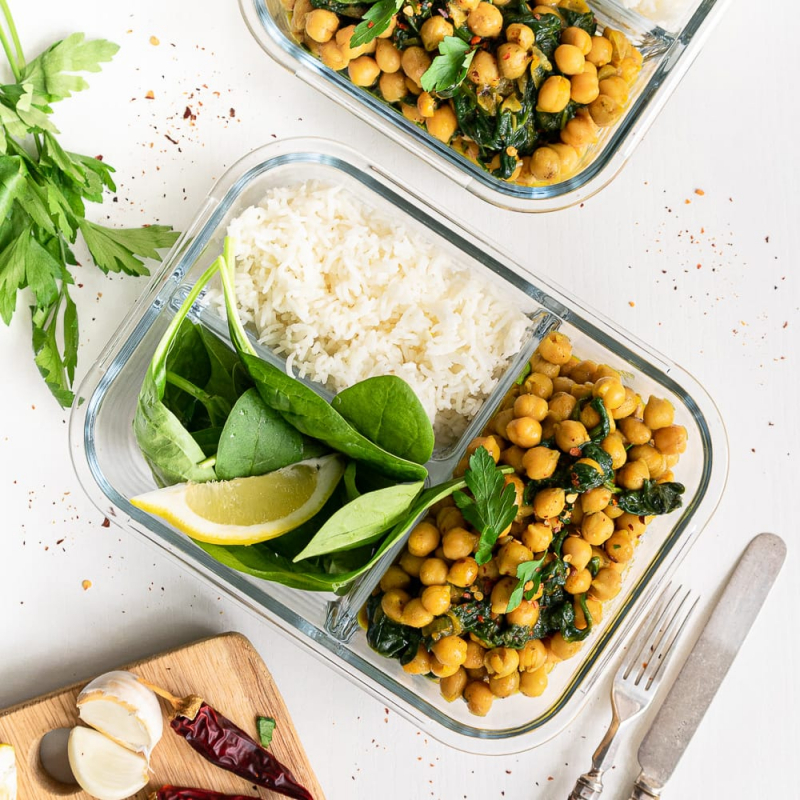
Consuming a Diet Low in Calcium 
Consuming a Diet Low in Calcium -
Eating a vegetarian or vegan diet calls for additional preparation, whether you're cooking at home or going out to eat. Though just because a vegetarian diet is healthy, doesn't necessarily mean it's an easy diet to start or follow long-term. Especially if you're used to eating meat multiple times a day.
In this case, meal planning is especially helpful if you're switching to a vegetarian or vegan diet. They can ease your transition and make it simpler to keep eating a well-balanced diet. The need for meal planning in advance increases when you're traveling or eating out. You can choose the most nutrient-dense options available by looking at the menu in advance because some restaurants provide limited options for vegetarians. Make it a point to research a few vegetarian dishes each week and prepare them on your own as well.
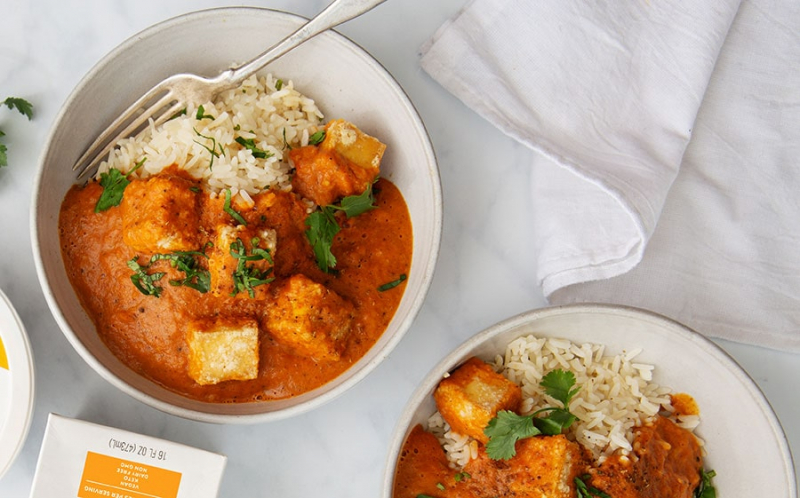
Underestimating the Importance of Meal Planning 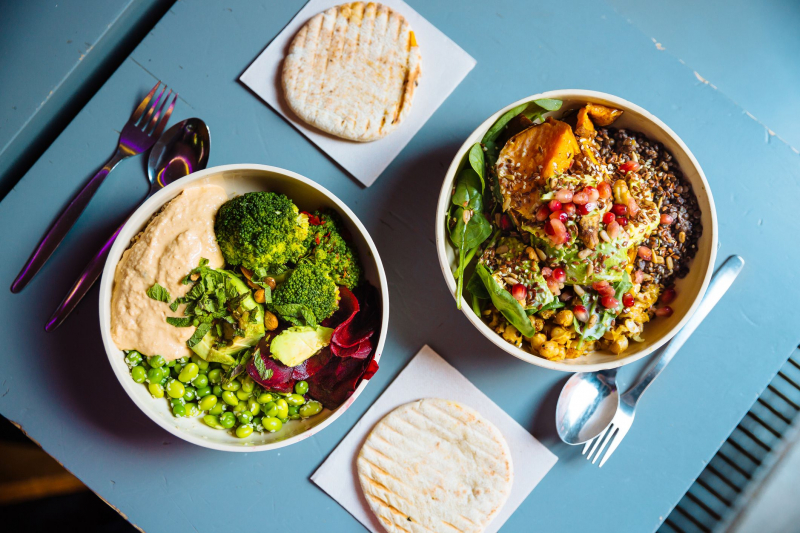
Underestimating the Importance of Meal Planning -
Protein is an important part of a healthy diet. It is used by your body to help build tissue, create enzymes and produce hormones. According to studies, eating protein can also help people feel more satisfied, build more muscle, and reduce their cravings.
According to the most recent recommendations, adults should consume 0.8 g of protein every 2.2 pounds (1 kg) of body weight each day. For instance, a person weighing 154 lbs (70 kg) would require about 56 g of protein per day. You'll probably find it easy to fulfill this requirement if you regularly consume foods that come from animals. While roasted chicken provides 27 g of protein per 3-ounce (85-gram) serving, salmon only has 19 grams. However, if you're a vegetarian, you might need to work harder to find high-protein foods that will help you eat enough protein to satisfy your needs. There are several plant-based diets available that have protein levels comparable to those of meat. 18 g of protein, for instance, are included in 1 cup (198 g) of cooked lentils. You can increase your daily protein consumption by eating more beans, lentils, nuts, nut butter, tofu, and tempeh. To ensure you're getting enough protein, try to include at least one or two of these foods in each meal.

Not Eating Enough Protein-Rich Foods 
Not Eating Enough Protein-Rich Foods












